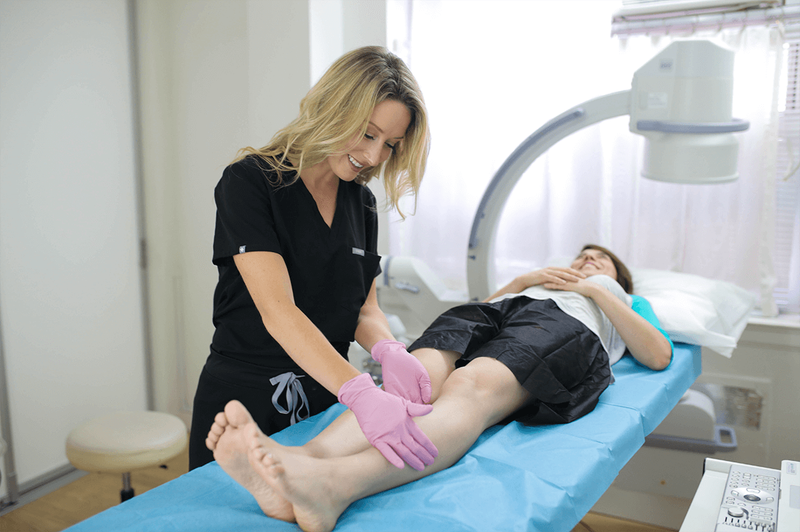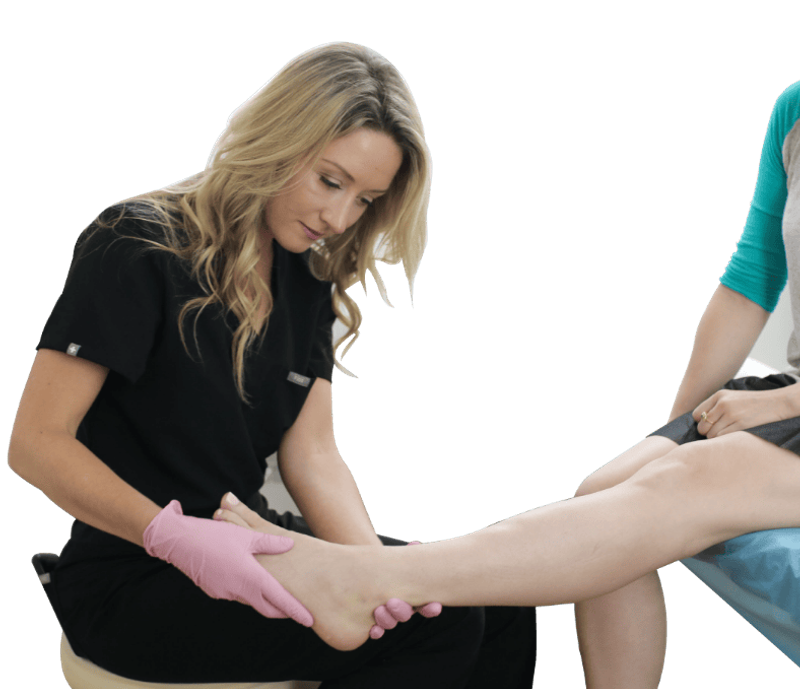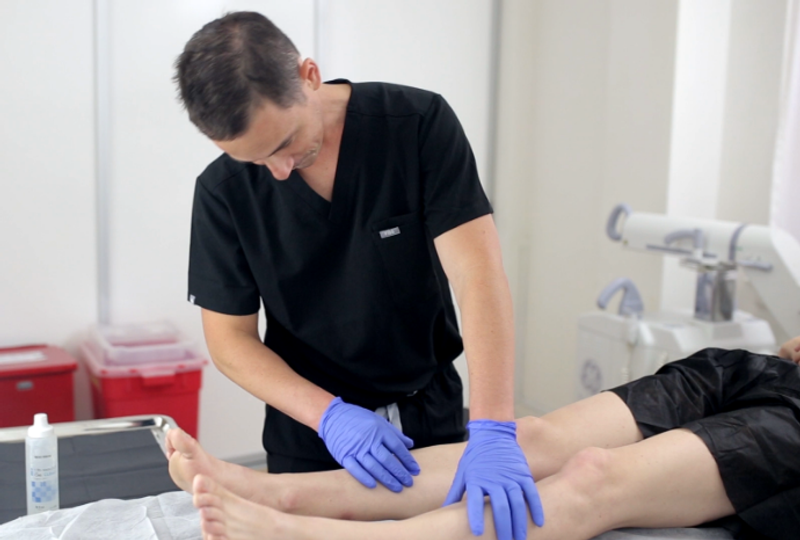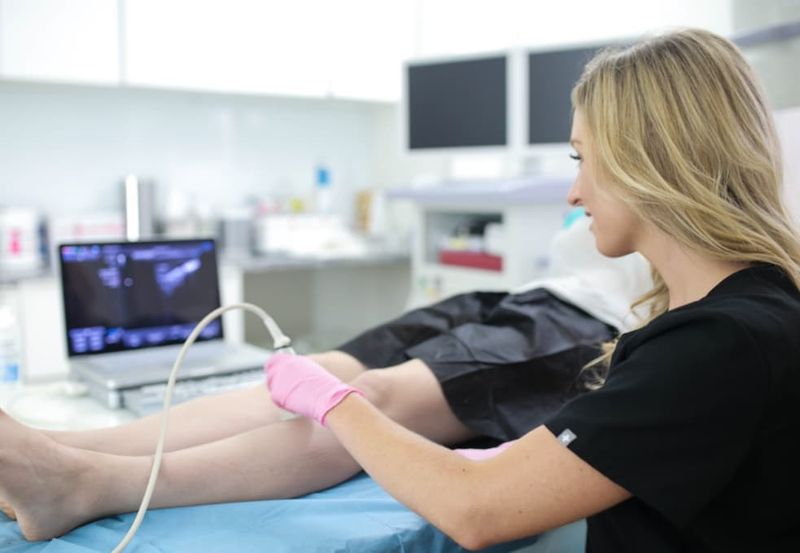How To Choose The Right Vein Specialist?
You know that sensation of tired, heavy, maybe even achy legs at the end of the day. And then you glance down one day at your legs and see all of those twisty, bulgy veins that are popping out. Yikes! Sounds familiar? Don’t worry; you’re not turning into a roadmap! Those are varicose veins, and they’re actually pretty common. Before you start panicking and looking up crazy home remedies (we see you!), settle down for a moment. The first step is to find the right type of doctor for the job. This is where a vein specialist comes in. We’re going to discuss “what type of doctor treats veins,” how to find a good vein specialist, and what modern treatments are available because we are way beyond scary surgeries and long recoveries!
What Kind of Doctor Treats Veins?
First and foremost, not all doctors are vein “doctors.” That type of doctor who treats veins does have doctors who are specifically trained in diagnosing and treating vein problems, who are the so-called vein specialists. They can be vascular surgeons, interventional radiologists, or phlebologists (I know, that’s a mouthful!). A vein specialist is someone who is specifically trained to diagnose and treat vein problems (varicose veins, spider veins, or even vein diseases).
What Is a Vein Specialist Called?
A vein specialist might go by different titles depending on their training. You might see “vascular surgeon,” “interventional radiologist,” or simply “vein doctor” on their office door. Some also specialize in something called “phlebology,” which is the study and treatment of veins. No matter what they’re called, the important thing is that they have experience with vein conditions and know what they’re doing.

What is the latest treatment for varicose veins?
Gone are the days when surgery was your only option. The latest treatment for varicose veins includes minimally invasive procedures like
Endovenous Laser Therapy (EVLT) – Uses laser heat to close off the damaged vein.
Radiofrequency Ablation (RFA) – Similar to EVLT, but uses radio waves instead of lasers.
Sclerotherapy – A special solution is injected into the vein, causing it to collapse and disappear over time.
VenaSeal™ – A medical adhesive is used to seal the vein shut.
These new treatments are quick, often done right in the doctor’s office, and require very little downtime.
How to Find Vein Treatment Near Me?
Begin by searching “vein treatment near me” on Google or ask your primary doctor for a referral. Read reviews, research the clinic’s website, and call with questions if you want to clarify. Check that they provide the latest treatments and that the doctor is a board-certified provider.

Looking for Vein Treatment in Long Island?
If you are in the vicinity, there are several quality providers for “vein treatment in Long Island.” Whether you are on the Nassau or Suffolk side, you will find vein specialists experienced and able to offer the latest treatments. Again, look for board certification, patient reviews, and a free consultation to get you started.
Verify Credentials
Final Tips for Choosing the Right Vein Specialist
Verify that the doctor is certified and has the requisite training in vein care.
● Ask About Technology
Does the office provide the latest treatments for varicose veins, such as EVLT or VenaSeal™?
● Research Reviews
Typically, happy patients will leave good feedback.
● Comfort Level
You should feel comfortable asking questions and talking about your symptoms.
● Location
Search “vein treatment near me” to look for someone local or “vein treatment in Long Island” if you are in that area.
5 Non-Surgical Treatments For Varicose Veins
Varicose veins can be an annoying problem. They are the bulging, squiggly veins that usually appear on your legs, and they can cause you to be uncomfortable physically and even emotionally. If you have been searching "How can I get rid of varicose veins without surgery?" to get rid of varicose veins without surgery, you are certainly not alone. The fantastic news is that you do not have to get surgeryvein treatment center to treat varicose veins. There are many safe and effective non-surgical treatments available today that can help alleviate the discomfort from varicose veins and even improve them or, in some cases, completely take them away. Whether your main concern is pain, swelling, or you just want to feel more confident in shorts, there is something you can try. Let's go over five simple treatments to get you started.
1. Compression Stockings
Don't let the fancy name scare you. Sclerotherapy is not that complicated. A doctor injects a special solution directly into the varicosities, and then the veins collapse and fade away. It's a quick procedure; you won't have to worry about surgery or downtime. You may need a couple of treatments; nevertheless, many people get great results.
2. Sclerotherapy
If you don't like needles, this might be a good option for you. Laser treatment involves a light that closes off a small varicosity or spider vein. It is done on the surface of the skin and feels like a rubber band snap. Once again, there is no cutting, and it is very quick. You may have more than one treatment, but most people can tolerate it.

3. Laser Therapy
If needles aren't your thing, this one may be right up your alley. Laser treatment uses light to close off small varicose veins or spider veins. It's done right on the surface of the skin, and it feels more like a rubber band stretched and snapped. And there is no cutting, and the treatment is quick. You may need more than one session, but overall, people seem to tolerate this procedure well.
4. Radiofrequency Ablation
Okay, this one sounds super high-tech, because it kind of is! Radiofrequency ablation involves placing a catheter into the vein (tiny) and sending out heat (radio waves), causing the vein to close. Your body will just reroute the blood into healthier veins. It is done with local anesthetic and has a short recovery time.
5. Lifestyle Changes
And yes, small changes in your daily routine can also really make a difference. Exercise, elevating your legs, eating less salt, and trying to avoid long periods of sitting or standing can all be helpful in reducing symptoms and avoiding new veins from showing up. Think of these changes as your long-term maintenance plan.

Is It Worth Getting Varicose Veins Removed?
Actually, it depends. If your veins are painful, swollen, or causing skin changes, or you just don't like the way they look, the treatment could be worth it. Non-surgical treatments are often safe and fast and have very little downtime. They also may prevent complications later on.
What Doctor Treats Varicose Veins?
The type of specialist that you would use is called a vascular doctor or vein specialist. Some dermatologists do offer treatments as well. You would find them at either a vein treatment clinic or a vein treatment center. They will evaluate your veins with an ultrasound and prescribe the best treatment plan that is non-surgical (or surgical, if warranted).
Effective Non-Surgical Methods for Treating Varicose Veins
Varicose veins are swollen, twisted veins often seen on legs that affect nearly one‑third of adults and may cause aching, heaviness, or swelling. If you are exploring vein treatment in Long Island or elsewhere, you will want to know which non‑surgical methods really work and whether removing varicose veins is truly worth it.
Why Remove Varicose Veins?
Many people wonder: Is it worth getting varicose veins removed? If symptoms include pain, swelling, night cramps, skin changes, or even minor bleeding, yes, treating them can greatly improve the quality of life. In addition, eliminating problematic veins helps prevent complications such as skin ulcers or superficial clots. Even treatments such as sclerotherapy or laser therapy can be highly effective due to cosmetic reasons.

Non‑Surgical Treatment Options
● Compression Stockings
Regular use of compression socks or stockings remains the primary-line, conservative vein remedy. These resource movements lessen swelling and sluggish development; however, they won’t put off current varicose veins.
● Lifestyle Changes & Home Remedies
Simple steps like elevating legs, ordinary walking or swimming, and keeping off extended sitting or status can alleviate soreness and save you from worsening.
● Phlebotonics (Herbal or Prescription Supplements)
Products like horse chestnut seed extract or prescription-only diosmin might also relieve signs and symptoms, although they don’t eliminate varicose veins.
● Ultrasound‑Guided Sclerotherapy
A minimally invasive outpatient procedure in which a sclerosant liquid or foam is injected to seal and fall apart affected veins. Most sufferers return to daily sports quickly, with 70–80% delight within months.
● Endovenous Ablation (Laser or Radiofrequency)
A catheter is inserted into the vein, and thermal energy closes it off. With minimal recovery and long-term benefits comparable to surgery, it is now the first treatment. A 5‑year trial showed ablation had better outcomes than foam sclerotherapy and similar efficacy to surgery, often at lower cost.
● High‑Intensity Focused Ultrasound
A new film on the horizon, HIFU (e.g., Sonovein), uses ultrasound energy to close veins completely needle‑free, though it is still emerging.
● Combined (Cryo‑Laser + Sclerotherapy)
CLaCS combines cooled laser therapy with sclerotherapy and may improve results on spider veins with reduced discomfort.

Spider Veins and Recurrence: “Do Spider Veins Come Back After Laser Treatment?”
The treated veins themselves don’t come back, but new ones can form due to genetics, lifestyle, or venous pressures. After laser or sclerotherapy, recurrence in the treated vessels is low: laser leaves only a 2–4% recurrence at five years vs. ~40% for old‑school surgery, while spider‑vein recurrence ranges from 30–60% in 3–5 years. Preventive habits and compression use can help prolong results.
Choosing a Vein Treatment Specialist in Long Island
Long Island has excellent vein treatment specialist, including:
● NYU Langone Long Island Vein Center (Mineola) – Offers EVLT, RFA, sclerotherapy, VenaSeal, and micro phlebectomy.
● Schulman Vein & Laser Center – Expert phlebologists specializing in non‑surgical laser and injection treatments.
● Vein Specialist Centers of LI – Provide sclerotherapy, ablation, microphlebectomy, VenaSeal, and ClariVein.
When you are searching, consultation with a board certified vascular surgeon or phlebologist is important, as they can evaluate whether your varicose veins are simple spider veins or part of a larger venous reflux issue.
Is Vein Treatment Worth It?
Absolutely, for many people. Non‑surgical therapies reduce signs, improve quality of life, and enhance formation with minimal rest. They carry fewer risks than open surgery and deliver long-lasting results, particularly endovenous ablation, which boasts low recurrence and fast recovery.
Final Thoughts
After reading this article, you may start with simple steps like compression stockings, leg elevation, and regular exercise to reduce varicose vein symptoms.
When you are feeling symptoms continue, then see a vein treatment doctors. In Long Island, many offer non-surgical options like laser therapy and sclerotherapy.
These treatments are safe, quick, and effective, with little to no rest. After treatment, stay active and wear compression stockings to prevent new veins.Non-surgical vein care is worth it. It improves comfort, appearance, and long-term health.